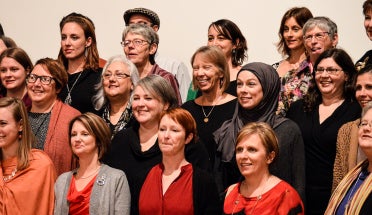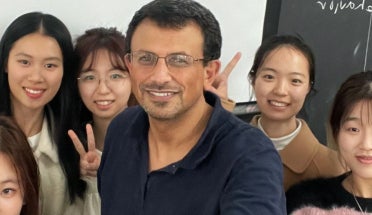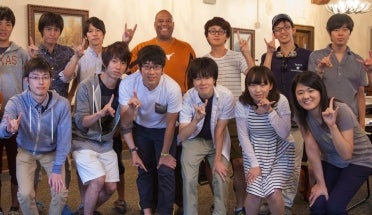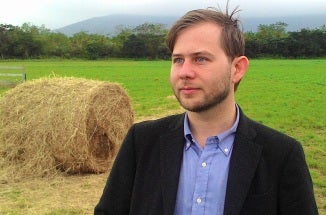
Teacher Feature: Eric Uphoff, English Language Center Instructor
- Aug 8, 2023
- English Language Center
- by Ellen Stader
[Editor's Note: This story is part of a Texas Global series celebrating the work of faculty members in the English Language Center at The University of Texas at Austin.]
The University of Texas at Austin’s English Language Center (ELC) offers comprehensive language-learning programs tailored to numerous levels of language proficiency, as well as specialized options for international students, professionals, visiting academics and other groups who want to improve their English-speaking skills. Relevant social and cultural immersion activities accompany classroom practice in each course.
Among the dedicated and highly trained faculty, many ELC instructors are certified by the Cambridge Certificate in Teaching English to Speakers of Other Languages (CELTA) program — one of the few existing certification programs that includes teaching practice among its requirements. The CELTA certification is highly regarded around the world because of its high standards and rigorous assessments.
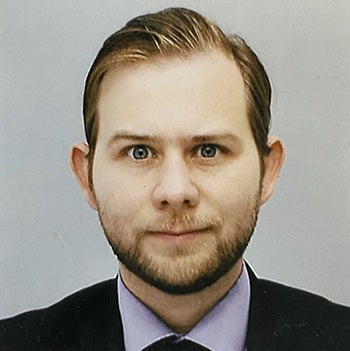
New instructor Eric Uphoff embarked years ago on his ELC experience as a CELTA trainee under the guidance of longtime ELC faculty member Curt Reese. Already a language student himself, learning Mandarin in Taiwan, Uphoff completed the rigorous teacher training in 2014.
He then moved overseas to gain teaching experience and later pursued a master’s degree. After teaching for more than 10 years in Asia, Uphoff recently came full circle with the ELC, rejoining this time as a faculty member.
You’re a recent hire at the English Language Center. Have you taught English at other institutions, in other cities or countries?
Most of my experience teaching English was in Taiwan. I lived there for about 11 years, first as a student at the Mandarin Training Center at National Taiwan Normal University. Then, after I obtained my CELTA certification, I started teaching there.
Working at language institutes, I’ve taught all ages of students — from 5 to 75 — in both Mandarin and English. I spent several years teaching at an international private school, and also a year teaching junior high school in Ibaraki, Japan.
How did you return to become an ELC instructor at UT Austin?
Once the pandemic had cooled a bit, I felt I needed to be closer to my family in the United States; I also wanted build experience teaching at a university. I got in touch with my former teacher Curt Reese, who also teaches at UT, and he told me that the university was looking for English teachers.
I submitted my resumé, and several weeks later, I found myself back here at the ELC. Currently I’m working with beginner and lower intermediate level classes in the English Language Program.
What hopes do you have for your work as an instructor at the ELC?
I hope to be part of the international community and help students broaden their worldview, regardless of whether they hope to stay in the U.S., return to their own countries or go and explore the world.
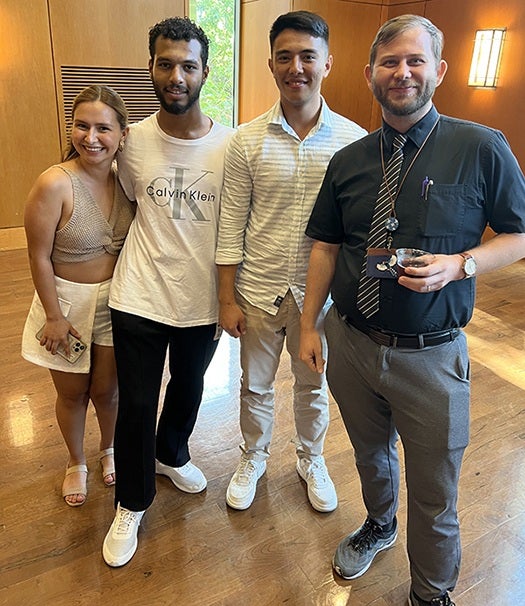
What do you like most about teaching English?
I love meeting people from all over the world. I’ve traveled extensively in East Asia, but I haven’t been elsewhere. Meeting my students and hearing their stories as they share about their home countries gives me a personal look at so many places I’ve never been.
What do you find most difficult about teaching English?
I once heard the expression, “English isn’t a language of rules, but a language of ‘usually’s.” In the classroom, teachers and students like a clear answer — but the deeper you go into English, the less clear the answers become. Sometimes, I find it difficult to know when to start introducing the exceptions to the rules, and how deep to go into that rabbit hole.
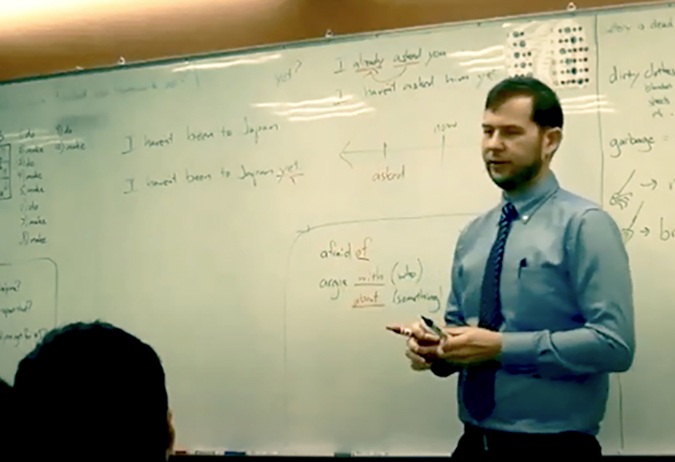
What do you wish more people understood about learning a language?
I think a lot of people see learning a language as the goal, so they judge themselves by how much they know, how correct their grammar is, and things like that. I believe that learning a language is not the goal, but a journey. Success should be measured by what you can achieve using that language.
I use my own experience as an example: My Mandarin isn’t perfect, but I made friends and saw many parts of the world that were new to me. I can even go to the dentist on my own! Being able to do that is success with language, not the score on a proficiency test.
What is your best teaching memory so far?
While I was teaching at the international school, I often worked with kindergarten students, and children at that age love music and singing. I’d actually studied music when I first went to college, so it was very fun for me to bring my guitar and teach the children songs I’d learned when I was their age.
For some of the children, they were exploring a whole new world through music and song. For others who were of mixed heritages, they were also connecting with that childhood culture from their mother’s or father’s side of the family. I think music has a special way of connecting language and culture.
Now that you’ve returned to UT Austin as a teacher, what are you hoping to accomplish at the ELC?
My biggest goal is to build a career teaching at the university level. I enjoy teaching ESL, but I also want to gain skills like teacher training so I can prepare new generations of ESL teachers. My CELTA training changed the trajectory of my life, so I want to pay that back by giving others that same life-changing opportunity.

